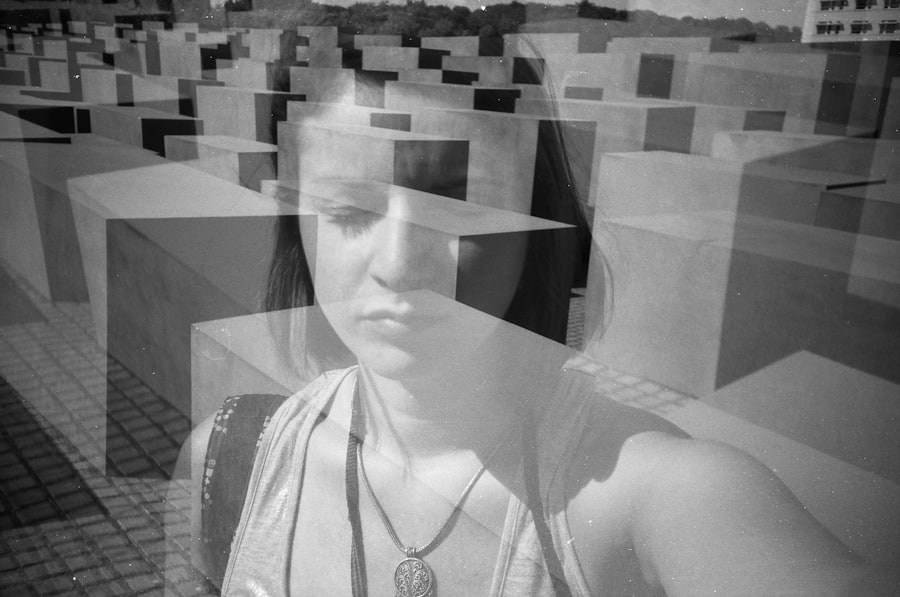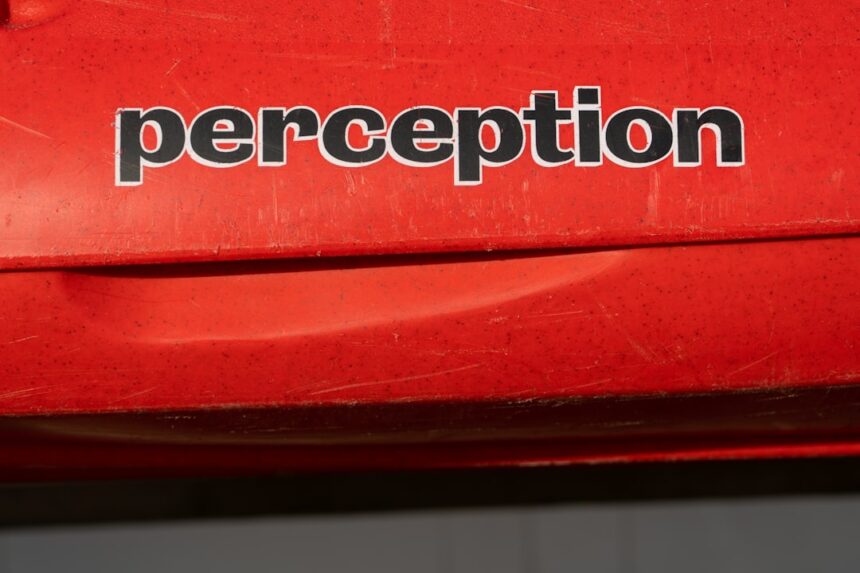Depersonalization and derealization are psychological phenomena that can leave you feeling detached from your own thoughts, feelings, or sense of self. When you experience depersonalization, it may feel as though you are an observer of your own life, as if you are watching yourself from a distance. This can lead to a sense of disconnection from your body or emotions, making it challenging to engage fully with your experiences.
On the other hand, derealization involves a sense of unreality regarding your surroundings. You might perceive the world around you as strange or dreamlike, as if everything is happening in a movie rather than in real life. These experiences can be unsettling and disorienting, often leading to confusion and anxiety.
While they can occur in response to stress or trauma, they can also manifest without any clear trigger. Understanding these phenomena is crucial for recognizing their impact on your mental health and daily functioning. Both depersonalization and derealization can be symptoms of various mental health disorders, but they can also occur independently, making it essential to explore their nuances.
Key Takeaways
- Depersonalization is a feeling of being disconnected from one’s thoughts, feelings, and body, while derealization is a sense of unreality or detachment from the environment.
- Symptoms of depersonalization and derealization may include feeling like an outside observer of one’s thoughts or body, experiencing a distorted sense of time, and feeling detached from surroundings.
- Causes of depersonalization and derealization may include trauma, stress, anxiety, depression, and substance abuse.
- Diagnosis of depersonalization and derealization involves a thorough evaluation of symptoms, medical history, and ruling out other potential causes.
- Treatment options for depersonalization and derealization may include therapy, medication, stress management techniques, and lifestyle changes.
Symptoms of Depersonalization and Derealization
The symptoms of depersonalization and derealization can vary widely from person to person, but they often share common threads. In depersonalization, you might experience feelings of detachment from your body or thoughts, leading to a sense of being disconnected from reality. You may feel as though you are observing yourself from outside your body or that your thoughts are not your own.
This can create a profound sense of confusion and anxiety, as you struggle to reconcile your internal experiences with the external world. Derealization, on the other hand, can manifest as a distortion of your perception of the environment. You might find that familiar places seem unfamiliar or that people appear as if they are part of a dream.
These symptoms can lead to significant distress, as you grapple with the feeling that reality is slipping away from you. Both conditions can be transient or chronic, and their intensity can fluctuate based on stress levels or emotional states.
Causes of Depersonalization and Derealization

The causes of depersonalization and derealization are complex and multifaceted. Often, these experiences are linked to overwhelming stress or trauma. For instance, individuals who have experienced significant life events such as abuse, accidents, or the loss of a loved one may find themselves grappling with these feelings as a coping mechanism.
The mind may create a protective barrier against emotional pain by detaching from reality, leading to depersonalization or derealization. Additionally, certain mental health conditions can predispose you to these experiences. Anxiety disorders, depression, and post-traumatic stress disorder (PTSD) are often associated with depersonalization and derealization symptoms.
Understanding the underlying causes is essential for addressing the symptoms effectively and finding appropriate treatment options.
Diagnosis of Depersonalization and Derealization
| Diagnosis of Depersonalization and Derealization | |
|---|---|
| Prevalence | 1-2% of the population |
| Age of Onset | Usually occurs in late adolescence or early adulthood |
| Diagnostic Criteria | Presence of persistent or recurrent experiences of depersonalization, derealization, or both |
| Duration | Episodes may last for hours, days, weeks, or even years |
| Associated Conditions | Often co-occurs with anxiety, depression, and trauma-related disorders |
Diagnosing depersonalization and derealization typically involves a comprehensive evaluation by a mental health professional. During this process, you may be asked about your symptoms, their duration, and any potential triggers. It’s important to provide detailed information about your experiences to help the clinician understand the context in which these feelings arise.
The diagnostic criteria outlined in the Diagnostic and Statistical Manual of Mental Disorders (DSM-5) can guide this assessment. A thorough evaluation may also include ruling out other mental health conditions that could explain your symptoms. For instance, conditions such as dissociative disorders or anxiety disorders may present with similar features.
Your clinician may use standardized questionnaires or interviews to assess the severity and impact of your symptoms on your daily life. Accurate diagnosis is crucial for developing an effective treatment plan tailored to your specific needs.
Treatment Options for Depersonalization and Derealization
When it comes to treating depersonalization and derealization, a variety of options are available depending on the severity of your symptoms and their underlying causes. Psychotherapy is often considered one of the most effective approaches. Cognitive-behavioral therapy (CBT) can help you identify negative thought patterns and develop coping strategies to manage distressing feelings.
Through therapy, you can work on grounding techniques that help you reconnect with your body and surroundings. In some cases, medication may be prescribed to address underlying mental health conditions contributing to depersonalization and derealization. Antidepressants or anti-anxiety medications may be beneficial for individuals experiencing these symptoms alongside anxiety or depression.
However, medication should always be considered in conjunction with therapy for optimal results. Collaborating with a mental health professional will allow you to explore the best treatment options tailored to your unique situation.
Coping Strategies for Depersonalization and Derealization

Coping with depersonalization and derealization can be challenging, but there are several strategies you can employ to help manage these experiences. Grounding techniques are particularly effective; these involve focusing on the present moment and engaging your senses to reconnect with reality. For example, you might try holding onto an object with a distinct texture or focusing on the sounds around you to anchor yourself in the here and now.
Mindfulness practices can also be beneficial in managing symptoms. Engaging in mindfulness meditation or deep-breathing exercises can help reduce anxiety and promote a sense of calm. Journaling about your experiences may provide insight into triggers and patterns associated with your symptoms, allowing you to develop greater self-awareness.
Additionally, maintaining a healthy lifestyle through regular exercise, balanced nutrition, and adequate sleep can support overall mental well-being.
The Relationship Between Depersonalization and Derealization and Mental Health
Understanding the relationship between depersonalization, derealization, and mental health is crucial for recognizing how these experiences fit into the broader context of psychological well-being. Both conditions are often associated with heightened levels of anxiety and stress, which can exacerbate existing mental health issues or contribute to new ones. For instance, individuals with anxiety disorders may find that their symptoms intensify during periods of high stress, leading to increased feelings of detachment.
Moreover, experiencing depersonalization or derealization can create a cycle of distress that further impacts mental health. The fear of losing touch with reality can lead to avoidance behaviors or social withdrawal, which may worsen feelings of isolation or depression. Recognizing this interplay is essential for developing effective coping strategies and seeking appropriate treatment options that address both the symptoms and their underlying causes.
How Depersonalization and Derealization Affect Daily Life
The impact of depersonalization and derealization on daily life can be profound and far-reaching. You may find that these experiences interfere with your ability to engage in everyday activities or maintain relationships. Tasks that once felt routine may become overwhelming when accompanied by feelings of detachment or unreality.
This can lead to difficulties at work or school, as concentration and focus wane under the weight of these symptoms. Social interactions may also suffer as you grapple with feelings of disconnection from yourself and others. You might feel isolated or misunderstood by friends and family who cannot comprehend what you’re experiencing.
This sense of alienation can exacerbate feelings of loneliness and despair, making it essential to seek support from those who understand or have experienced similar challenges.
Depersonalization and Derealization in Children and Adolescents
Depersonalization and derealization are not limited to adults; children and adolescents can also experience these phenomena. In younger individuals, these feelings may manifest differently than in adults due to their developmental stage and cognitive abilities. Children might describe their experiences in more concrete terms, expressing confusion about their identity or feeling as though they are in a dream-like state.
The causes in children often mirror those in adults—trauma, stress, or significant life changes can trigger these feelings. However, it’s crucial for parents and caregivers to recognize these symptoms early on to provide appropriate support. Engaging in open conversations about emotions and experiences can help children articulate what they are feeling while fostering an environment where they feel safe discussing their mental health.
Seeking Support for Depersonalization and Derealization
Seeking support for depersonalization and derealization is an essential step toward managing these experiences effectively. Whether through therapy, support groups, or trusted friends and family members, having a support system in place can make a significant difference in how you cope with these feelings. Connecting with others who understand what you’re going through can provide validation and reassurance during difficult times.
Professional help is particularly important if your symptoms persist or worsen over time. A mental health professional can offer guidance tailored to your specific needs while helping you develop coping strategies that resonate with you personally. Remember that reaching out for help is a sign of strength; it demonstrates your commitment to understanding yourself better and improving your overall well-being.
The Importance of Self-Care and Self-Compassion in Managing Depersonalization and Derealization
In managing depersonalization and derealization, self-care and self-compassion play vital roles in fostering resilience and emotional well-being. Prioritizing self-care means taking time for activities that nourish your mind, body, and spirit—whether through exercise, creative pursuits, or simply enjoying nature’s beauty. Engaging in self-care practices allows you to reconnect with yourself while providing moments of respite from overwhelming feelings.
Self-compassion is equally important; it involves treating yourself with kindness during difficult times rather than succumbing to self-criticism or judgment. Acknowledging that it’s okay to feel detached or disoriented at times can alleviate some pressure associated with these experiences. By cultivating self-compassionate attitudes toward yourself, you create space for healing while fostering a more positive relationship with your mental health journey.
In conclusion, understanding depersonalization and derealization is crucial for recognizing their impact on mental health and daily life. By exploring symptoms, causes, diagnosis methods, treatment options, coping strategies, and the importance of seeking support, you empower yourself to navigate these challenging experiences more effectively. Remember that you are not alone in this journey; there are resources available to help you reclaim your sense of self and connection to the world around you.
Depersonalization and derealization are dissociative experiences where individuals feel disconnected from themselves or their surroundings. Depersonalization involves a sense of detachment from one’s own body or thoughts, as if observing oneself from outside. Derealization, on the other hand, is characterized by a perception that the external world is unreal or dreamlike. These experiences can be distressing and are often associated with anxiety and stress. For a more in-depth understanding of these phenomena, you can refer to an article on the topic by visiting Unplugged Psych.
LEARN MORE About Unmasking the Mysteries Behind Depersonalization and Derealization
FAQs
What is depersonalization and derealization?
Depersonalization is a mental health condition where a person feels detached from themselves, as if they are observing themselves from outside their body. Derealization is a similar condition where a person feels detached from their surroundings, as if the world around them is unreal or distorted.
What are the symptoms of depersonalization and derealization?
Symptoms of depersonalization may include feeling like an outside observer of one’s thoughts or body, feeling like one is in a dream, or feeling emotionally numb. Symptoms of derealization may include feeling like the world is artificial or colorless, feeling like time is distorted, or feeling like objects are changing in shape or size.
What causes depersonalization and derealization?
Depersonalization and derealization can be caused by various factors, including trauma, stress, anxiety, depression, substance abuse, or certain neurological conditions. It can also be a symptom of other mental health disorders such as dissociative disorders or post-traumatic stress disorder.
How are depersonalization and derealization treated?
Treatment for depersonalization and derealization may include therapy, such as cognitive behavioral therapy or dialectical behavior therapy, to help individuals understand and manage their symptoms. Medications, such as antidepressants or anti-anxiety medications, may also be prescribed in some cases. It is important for individuals to seek professional help from a mental health professional for an accurate diagnosis and appropriate treatment plan.




